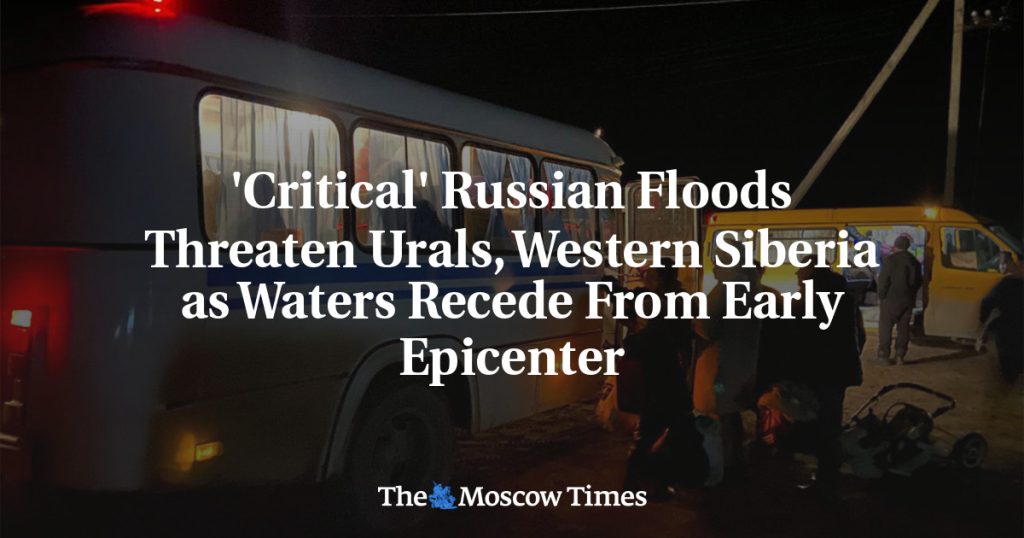The threat of flooding in Russia’s Ural Mountains has shifted from the town of Orsk to neighboring cities and regions, with thousands being forced to evacuate Orsk as the Ural River swelled. The floodwaters are now reaching dangerous levels in the main city of Orenburg, where the peak of the flood is expected on Wednesday. Orsk Mayor Vasily Kozupitsa reported that water levels in the Ural River had fallen, allowing some residents to return home, and services like hot and cold water and electricity were being gradually restored. Orenburg Mayor Sergei Salmin warned of an “unprecedented” peak of the flood, with eight villages facing critical situations.
In response to the flooding crisis, regional police have reported the emergence of fake charities soliciting false donations for relief efforts, as well as an increase in looting which has led to protests against the local administration. Rivers in western Siberia’s Kurgan and Tyumen regions are also swelling, with over 86,000 people evacuated from Kurgan and 689 people evacuated from the overflowing Tobol river. The mayor’s office in Kurgan, a city of around 300,000 people, warned that the floods could reach the local airport. Russia has declared regionwide states of emergency in the Orenburg, Tyumen, and Kurgan regions.
The Kremlin announced on Tuesday that the Kurgan and Tyumen regions are facing “difficult days ahead” due to the influx of water. Despite the crisis, President Vladimir Putin does not plan to visit the Orenburg region, but is regularly updated on the situation and is actively involved in addressing the flooding issues. The spokesman Dmitry Peskov stated that there is a lot of water coming to the affected regions, emphasizing the severity of the situation. Authorities have deployed additional police officers to prevent looting and ensure law and order is maintained during the crisis.
The situation in the affected regions remains critical, with widespread flooding threatening thousands of residents and overwhelming local authorities. The unprecedented levels of floodwaters in Orenburg and other cities in the Ural Mountains have prompted evacuations and emergency responses to help those impacted by the disaster. The presence of fake charities and reports of looting have added further challenges to the relief efforts, requiring increased security measures and police deployment to prevent criminal activities.
As the floodwaters continue to rise in the Ural Mountains, the Russian government has declared states of emergency in the affected regions to coordinate response efforts and provide necessary support to those in need. President Putin, despite not visiting the impacted areas, is actively engaged in managing the crisis and ensuring that resources are allocated to assist the affected residents. The influx of water poses a significant threat to infrastructure and communities in the region, requiring a coordinated and swift response to mitigate the impact of the flooding and prevent further devastation.
With the floods expected to peak in Orenburg and neighboring regions, the focus remains on ensuring the safety and well-being of residents in the face of this natural disaster. As the Russian authorities work to address the challenges posed by the flooding, including fake charities and looting, efforts are being made to restore essential services and provide support to those displaced by the rising waters. The resilience and solidarity of the affected communities will be crucial in overcoming the aftermath of the flooding and rebuilding the region in the aftermath of the disaster.


